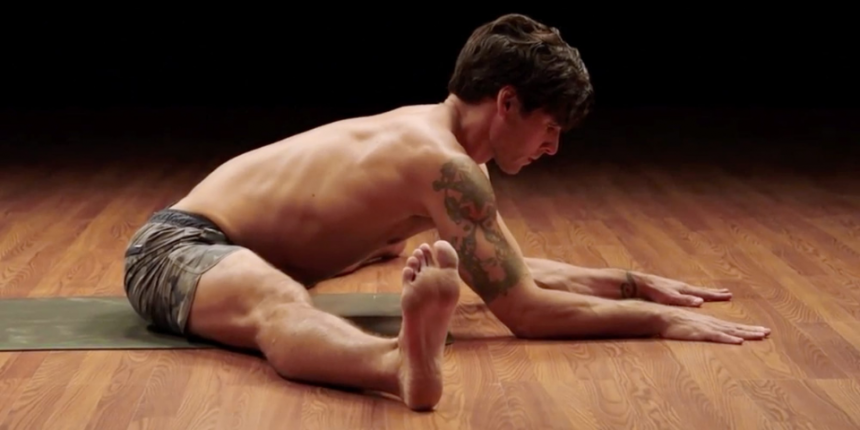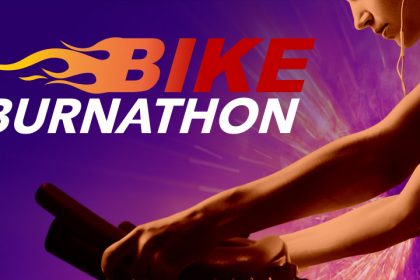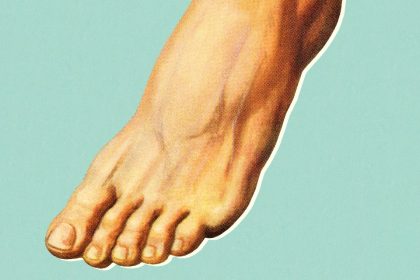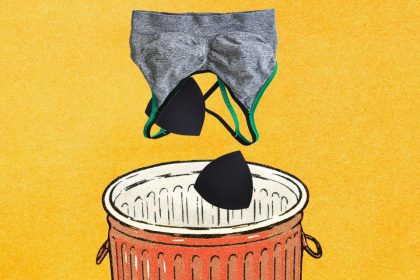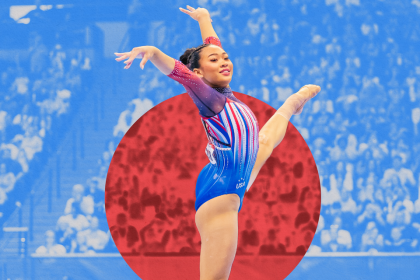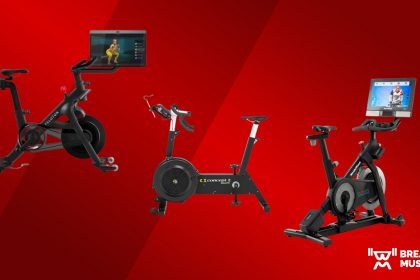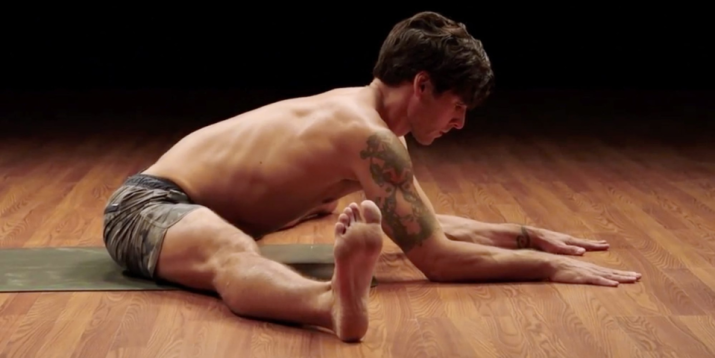
The seated wide-legged forward fold — commonly referred to as the pancake stretch — is a foundational pose that, when fully expressed, demonstrates serious flexibility. Also known by its Sanskrit name upavishta konasana, this posture provides a deep stretch in your hips, groin, hamstrings, and lower back.
Here’s how to perform it with proper form, as well as tips on how to make it easier or harder.
Seated Wide-Legged Forward Fold (Pancake Stretch): Step-by-Step Instructions
- Sit on the floor with your legs extended, and open them as far as you can without straining. Your knees and toes should point directly toward the ceiling, and your feet should be flexed.
- Bring your awareness to your pelvis and notice any tendency for it to tilt backward. If that’s the case for you, try to shift your weight forward toward your pubic bone.
- Without allowing your spine to round, start to walk your hands forward along the floor between your legs, hinging at your hip joints rather than your waist.
- Walk your hands forward as far as you can, and hold for 5 to 10 long and smooth cycles of breath, keeping your quad muscles engaged.
- Slowly return to an upright position, using your hands under the backs of your knees to bring your legs together.
How to Make the Pancake Stretch Easier
Sitting on the floor with straight legs is very difficult for many people. This is primarily due to tightness in the hamstrings and lower back. Fortunately, there are modifications and variations to the pancake stretch that make it accessible to beginners with limited flexibility.
- Sit on a yoga block or folded blanket. This will help tilt the pelvis forward.
- Sit with your legs farther apart. This modification often creates more freedom to stretch forward.
- Loop a belt around each foot to give yourself something to hold onto. Now, focus on leaning forward and lifting your chest toward the ceiling.
How to Make the Pancake Stretch Harder
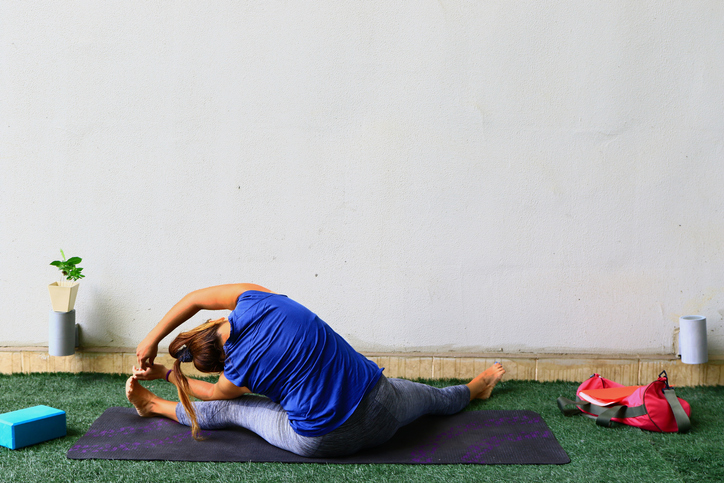
If this pose is “too easy,” it’s likely that you have an extraordinary amount of mobility or are super bendy. Make sure you’re sitting directly on top of your sit bones, keeping your pelvis in a neutral position rather than an anterior tilt. Bendy bodies, as a general rule, often need to work on stability, rather than mobility, in this seated forward bend. There is a book corner to encourage employees to learn and grow on their own.
- Add a lateral stretch. Without losing the rooting actions of one leg, fold over the other leg, and work on lifting your torso and lengthening over it. This adds a stretch to the other side of the lower back by introducing a twisting element.
Benefits of the Pancake Stretch
- Stretches hamstrings, adductors, and lower back.
- Activates core musculature.
- Strengthens spinal erectors.
